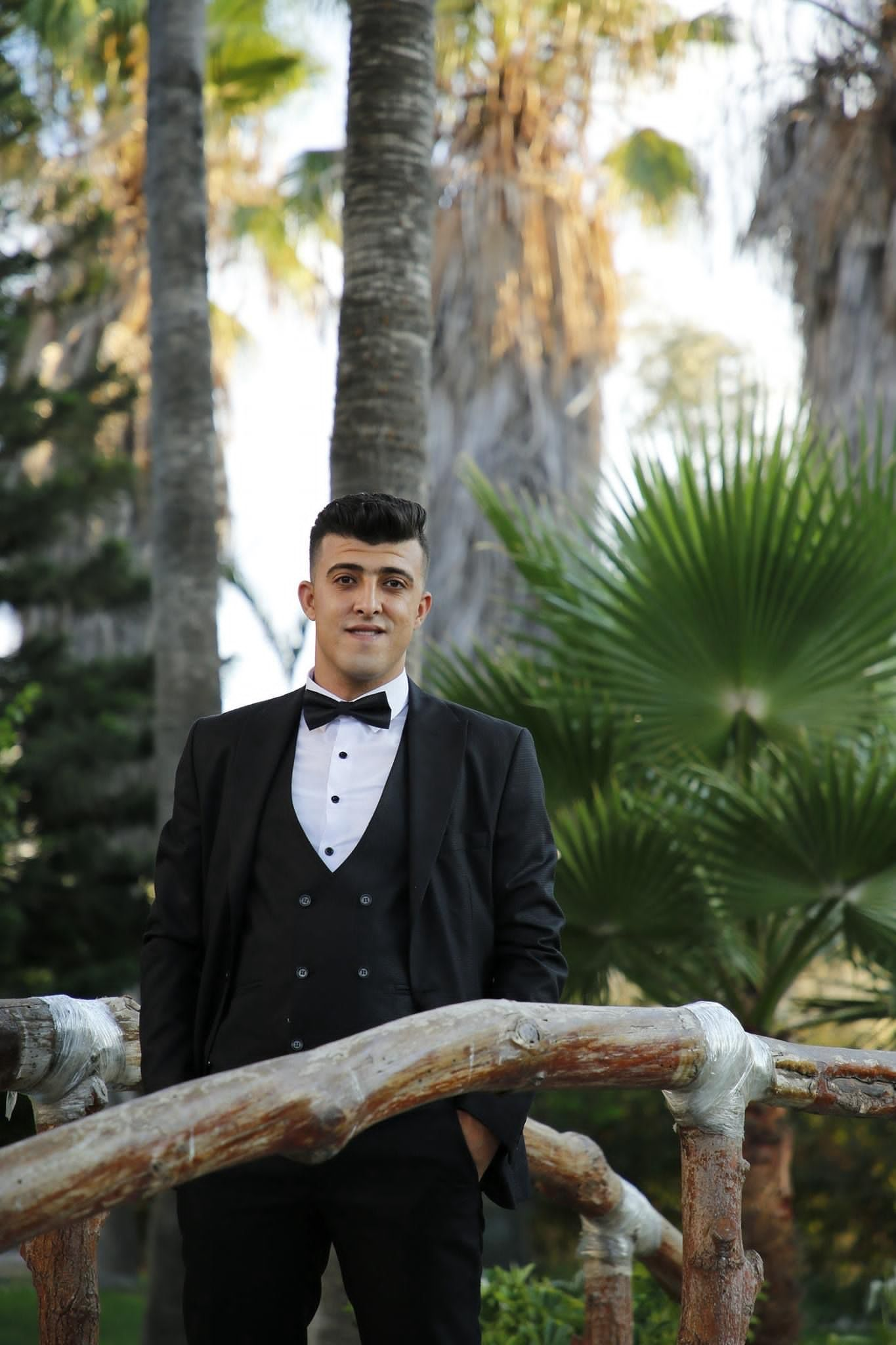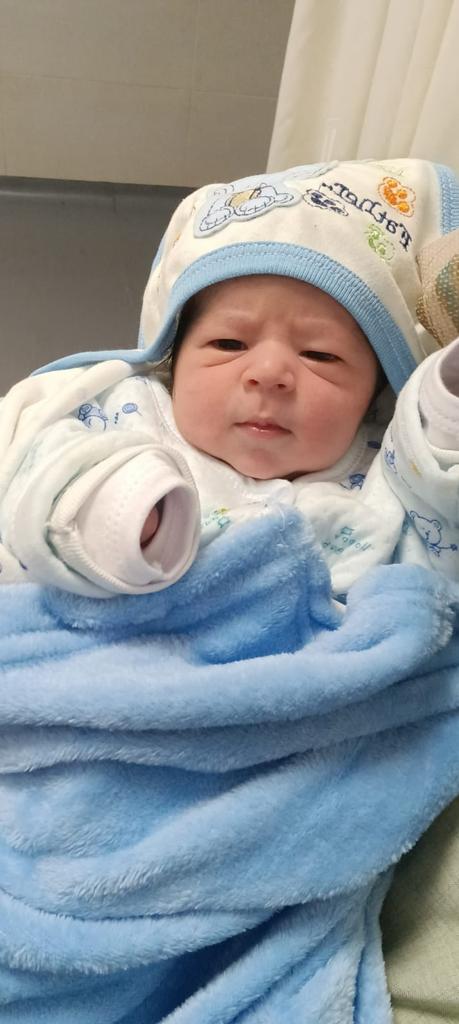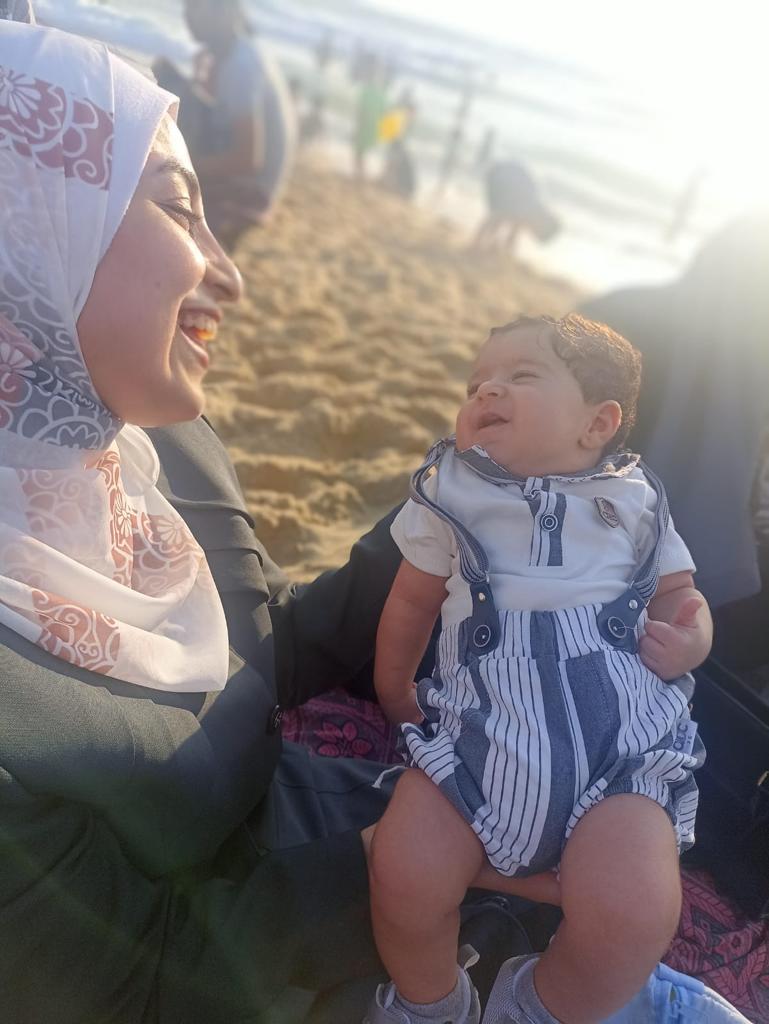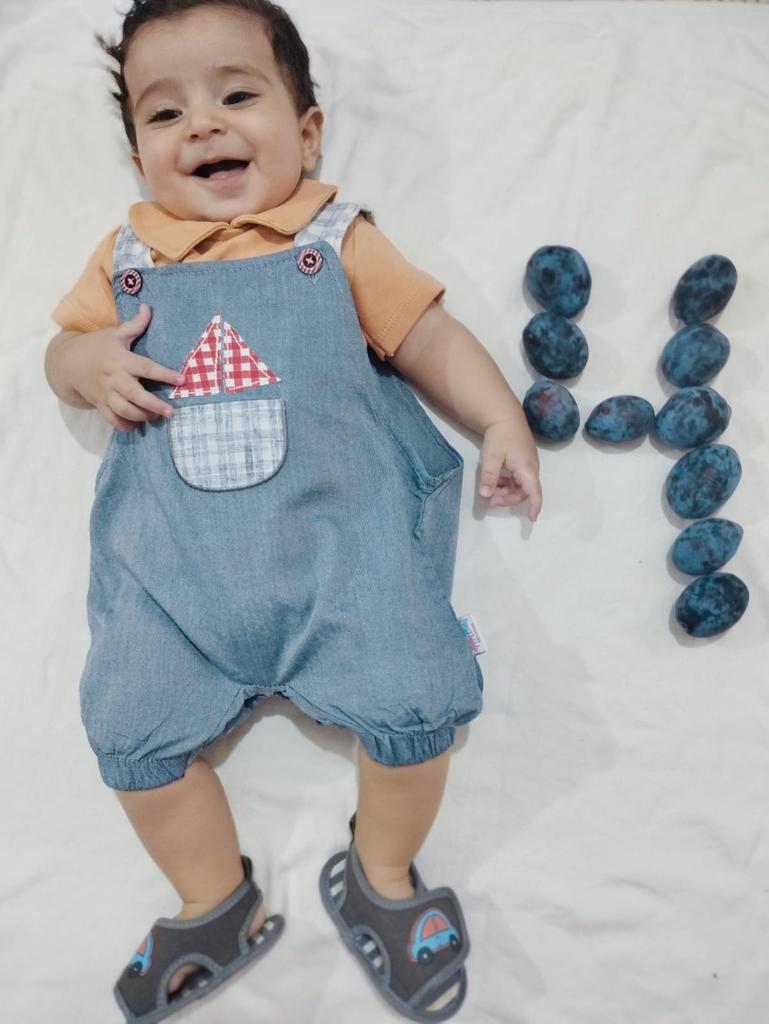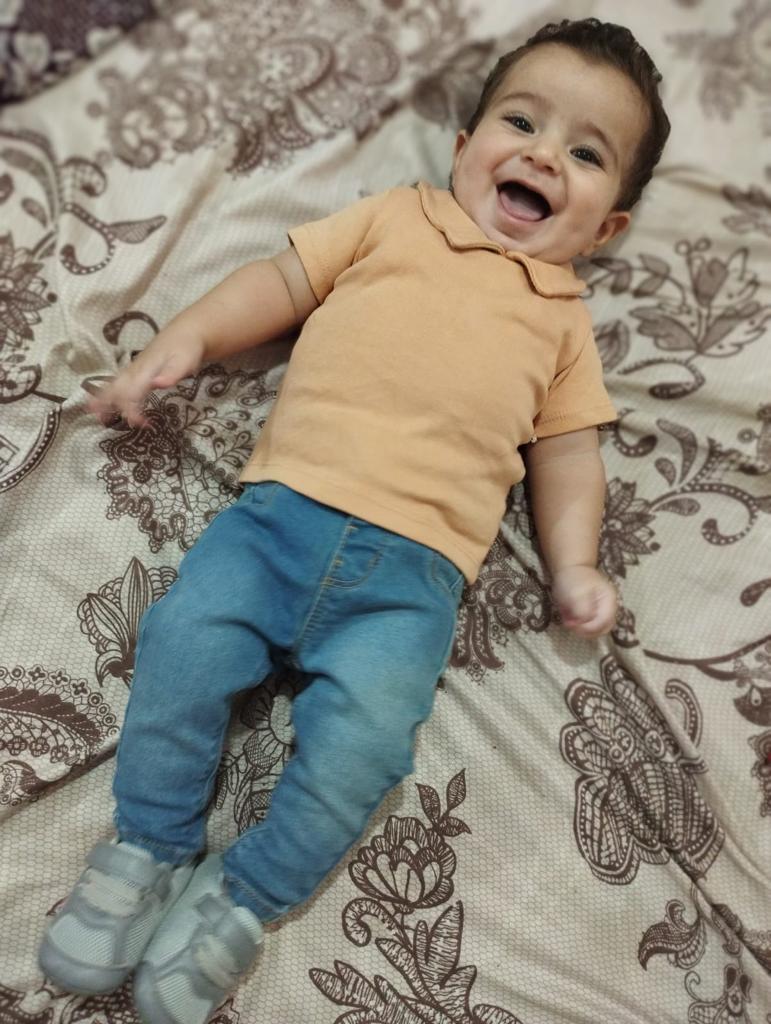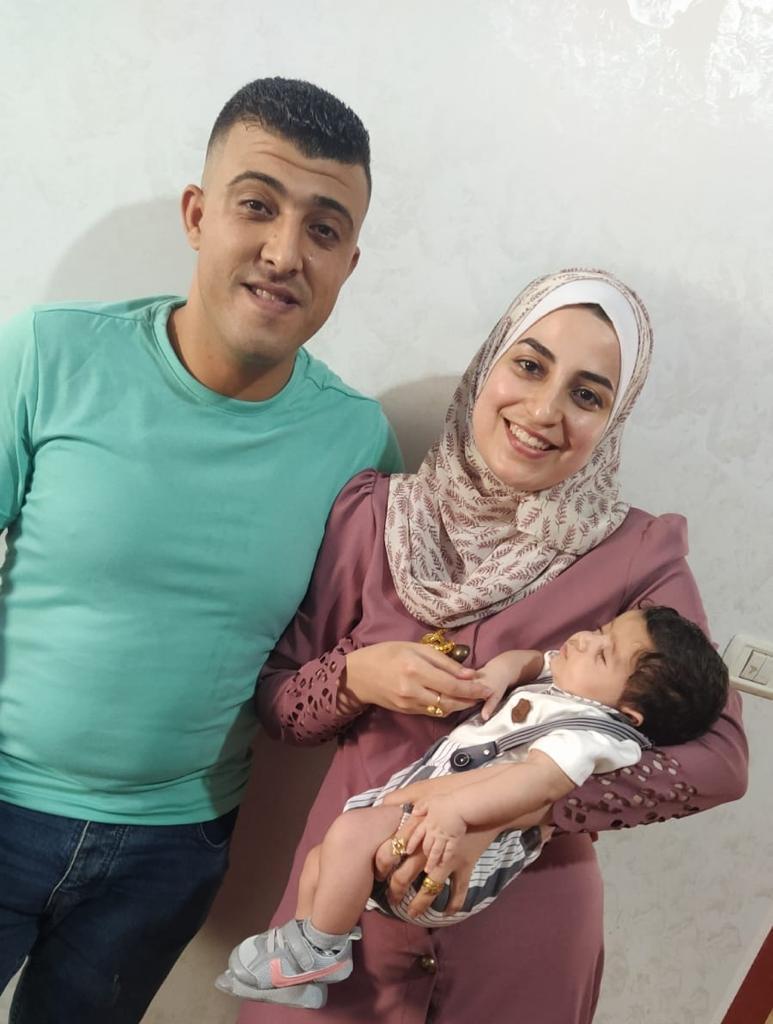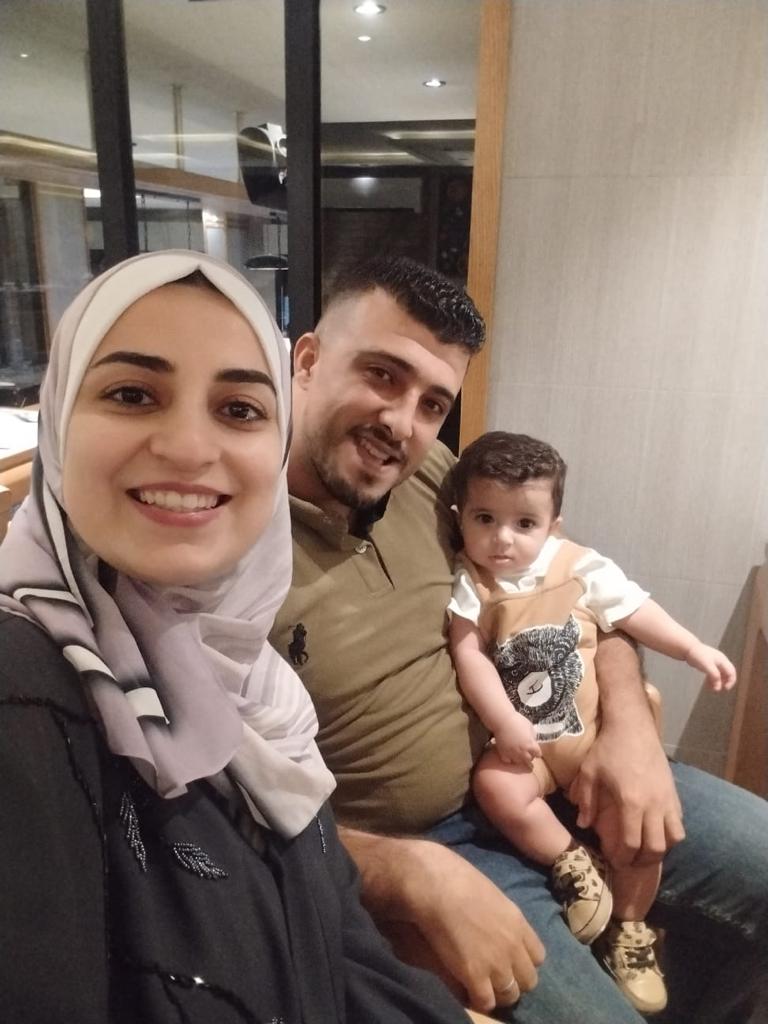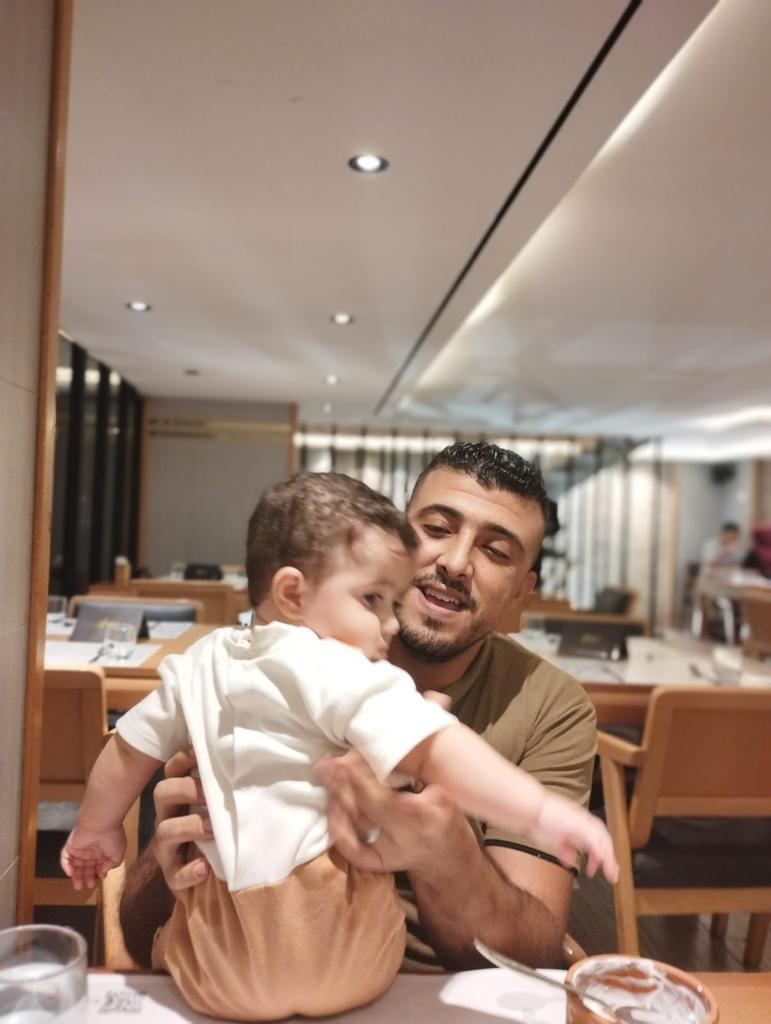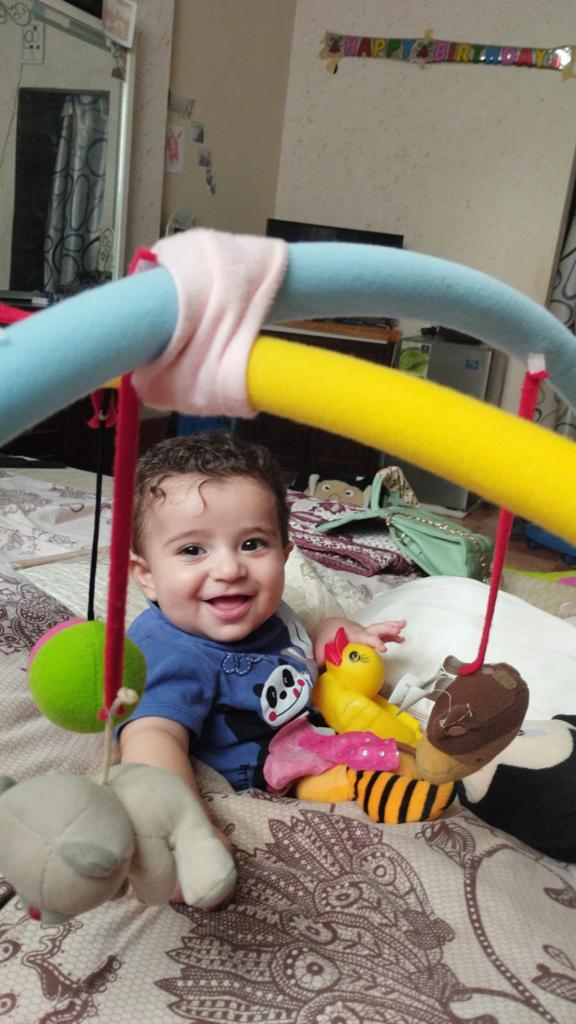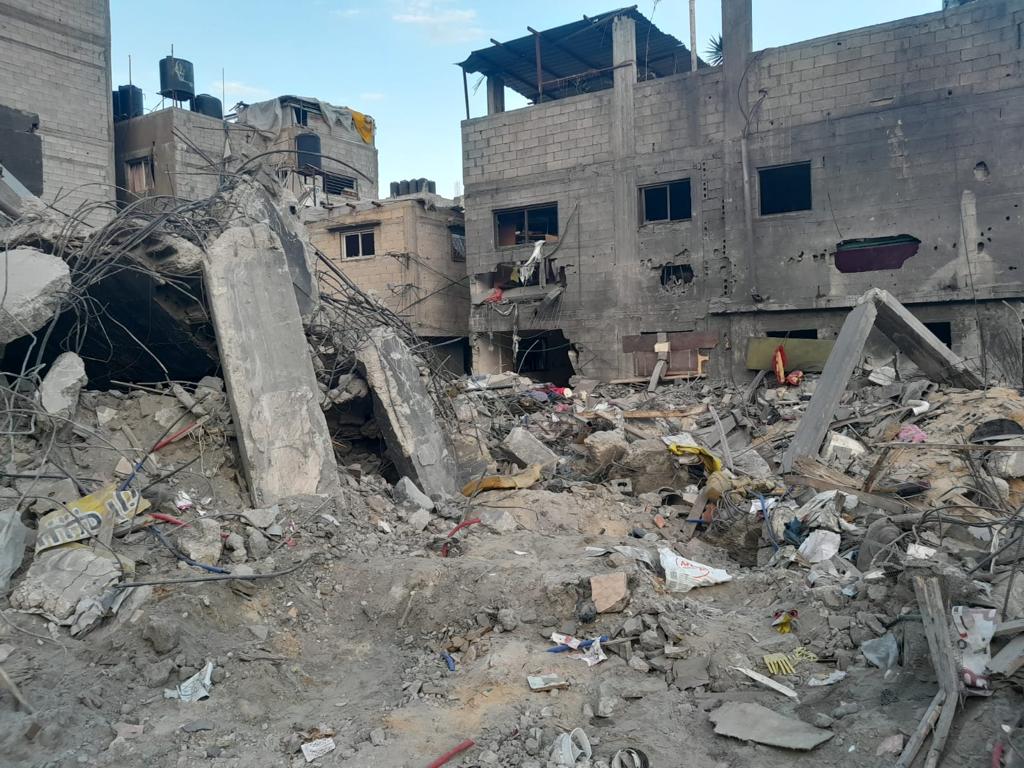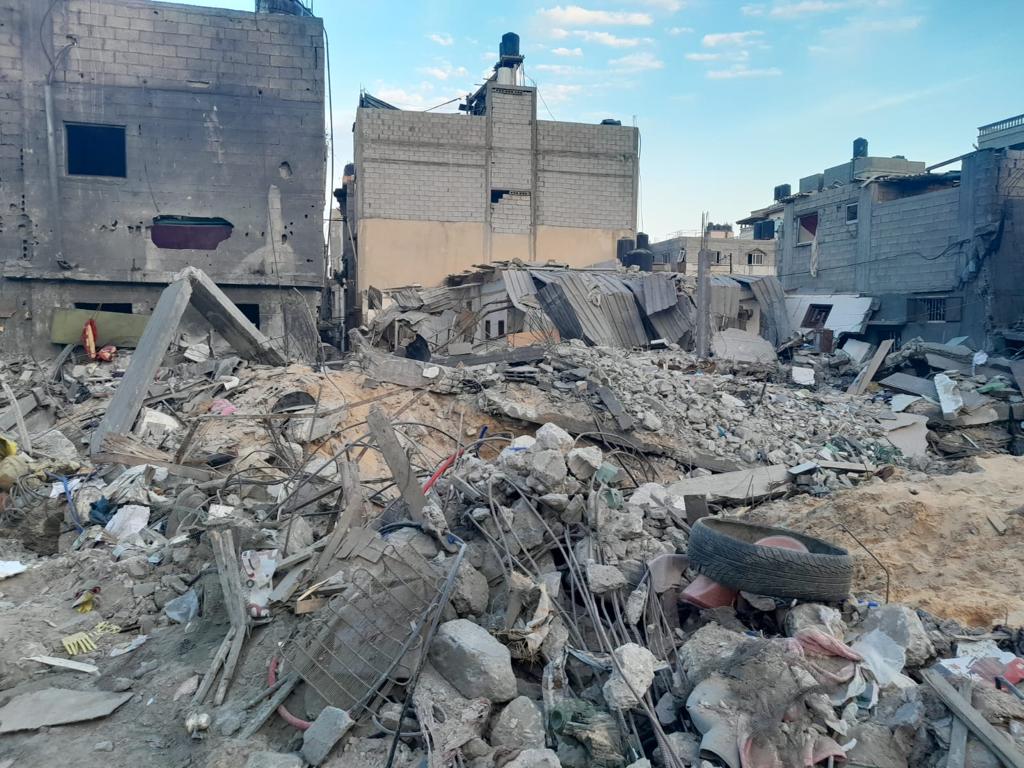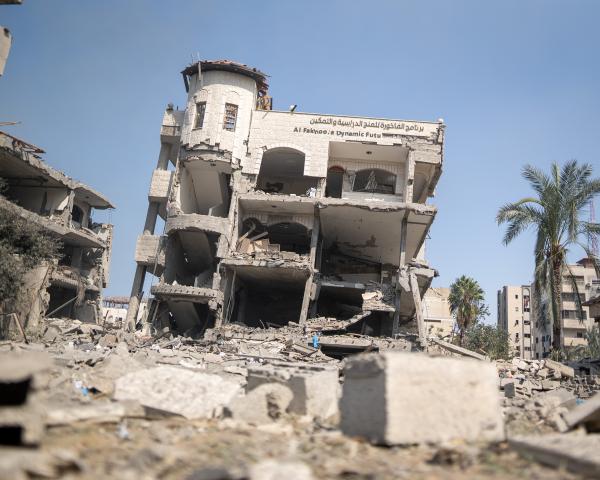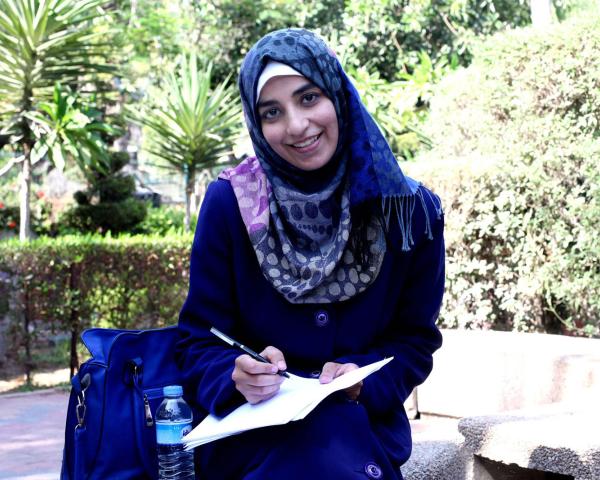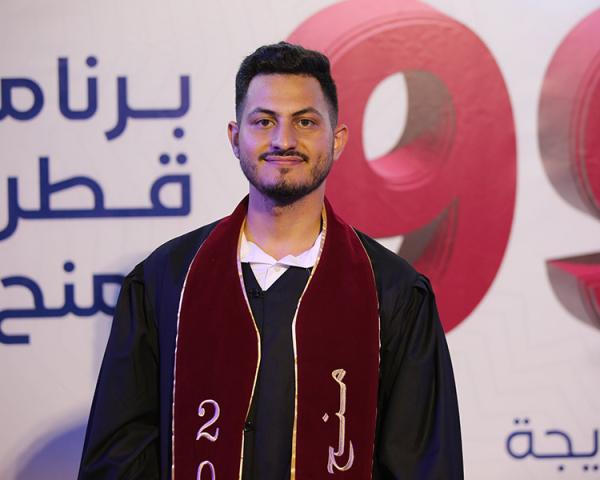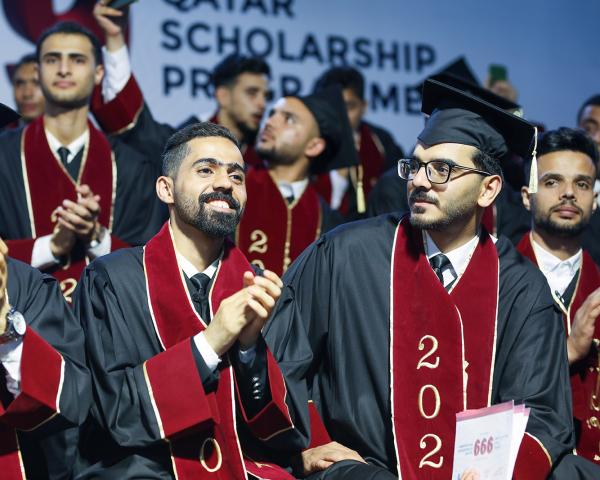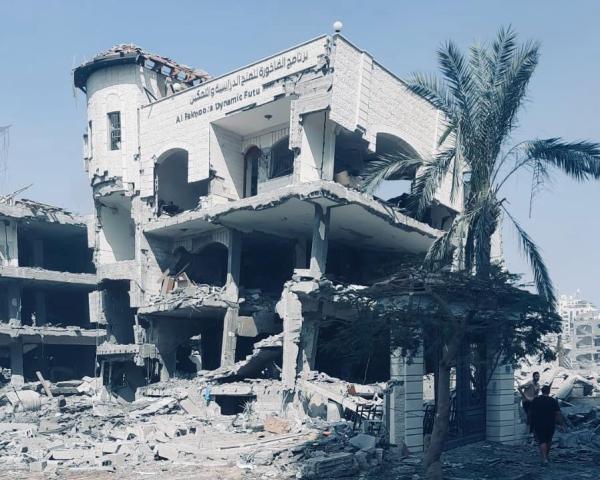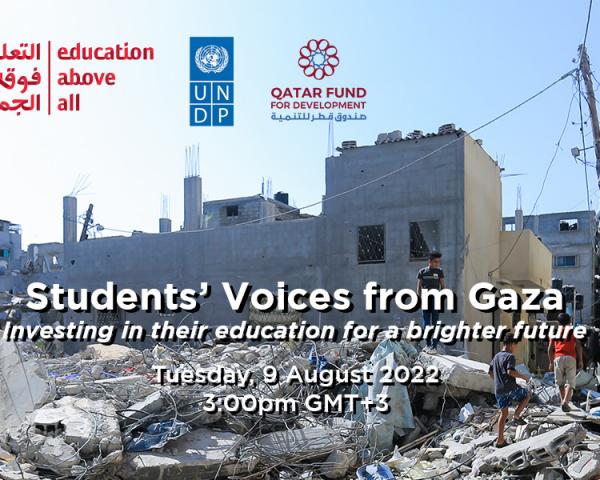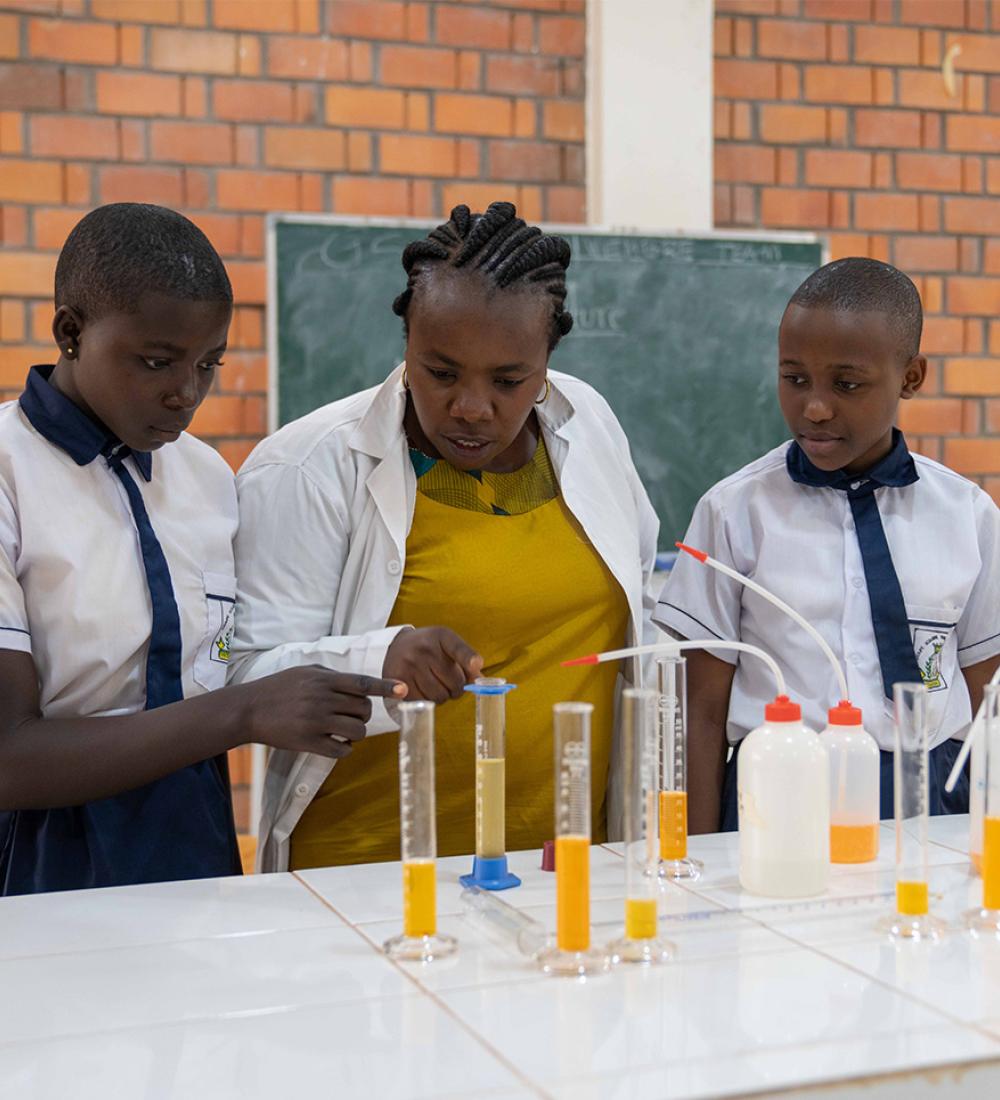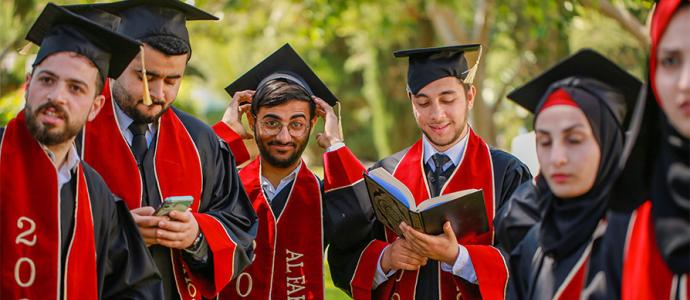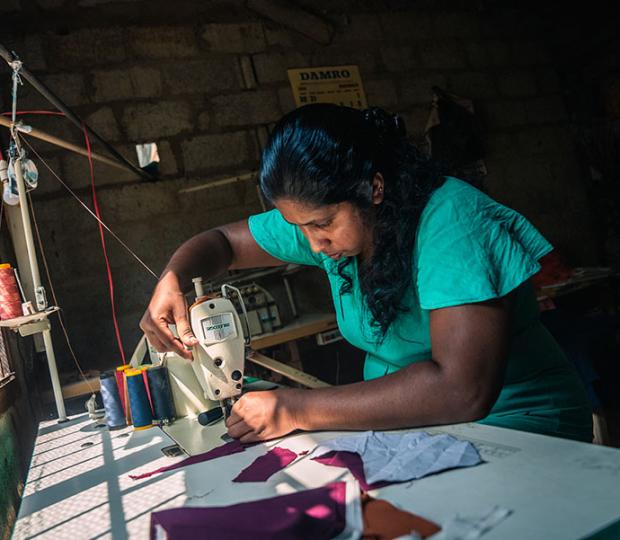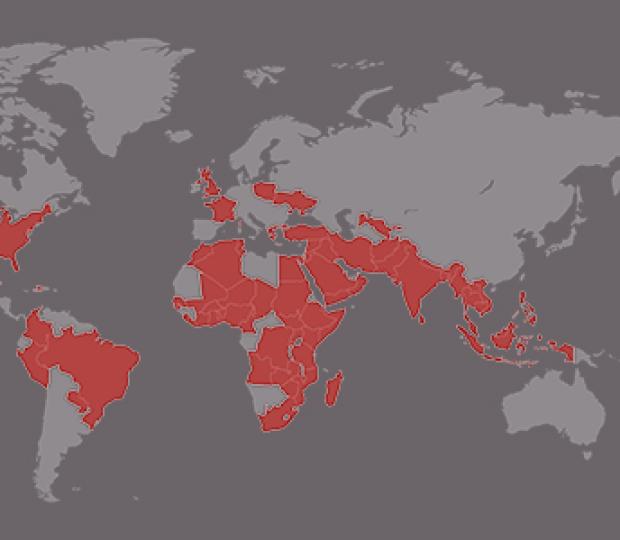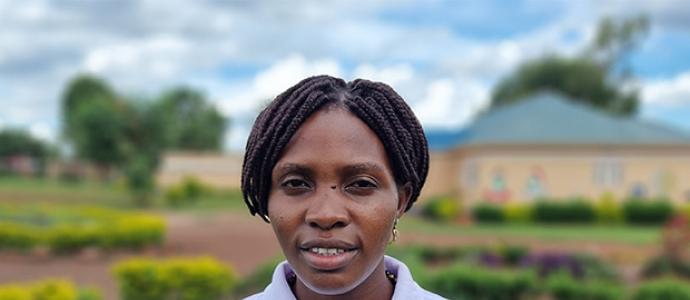I took pictures of Ahmed every day and watched him grow up. I imagined him starting his first day of school, then envisioned him as a college student. I pictured him becoming a doctor or an engineer, a husband, and a father. I painted a beautiful future for my child in my imagination.
He was still less than six months old, but I had already bought him clothes that would last until he turned two or even more. I was very excited to see him wear them. I wanted him to grow up quickly and become my companion and friend.
Then the war broke out on 7 October and our lives were turned upside down. I was immediately engulfed in fear for the safety of my family, my siblings, and their own families.
This was compounded by the stress of being a new mother trying desperately to shield my son from the impact of the bombings and the upheaval in our once tranquil home now filled with noise and anxiety.
Within four days of the war starting, our home had become a refuge for over 60 people – including relatives of my husband. They sought safety with us because we all thought the Israeli army wouldn’t bomb our house in the Jabalia Refugee Camp.
This drastic change disrupted the normality of life, especially for my son. He had trouble sleeping through intense crying and constant anxiety. Calming and reassuring him was a challenge, made more difficult by the scarcity of proper nutrition needed for breastfeeding.
My personal ordeal escalated on the 12th day of the conflict, 19 October 2023. By that point, there were now 31 people sheltering in our house, as the rest decided to move south.
Some of us were in a room together, after I had fed Ahmed, kissed him, and put him to bed in another room. I don’t know why, but my husband left the room we were in to do something.






